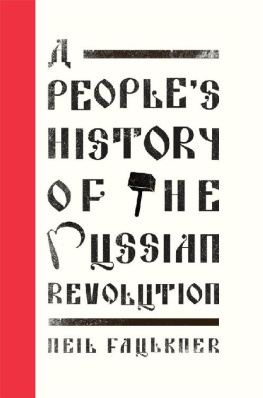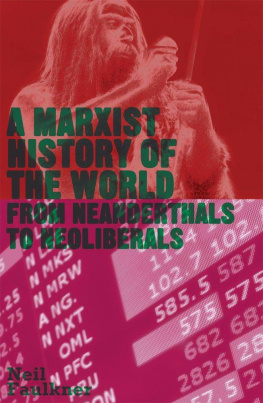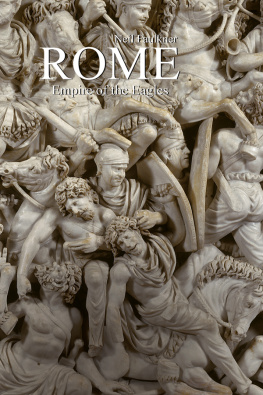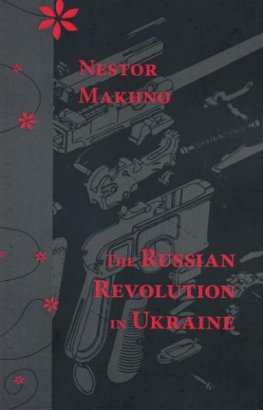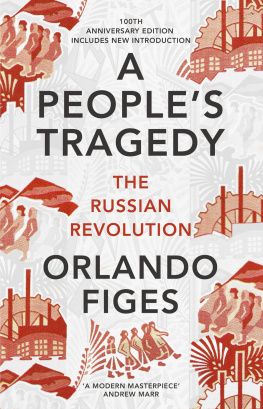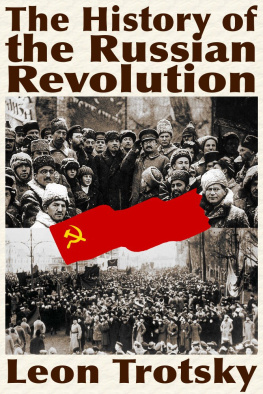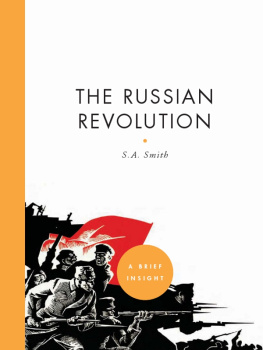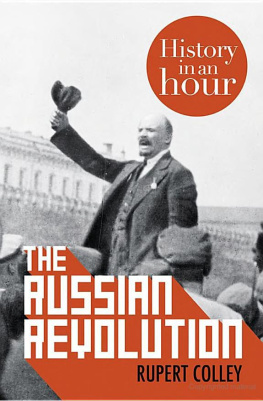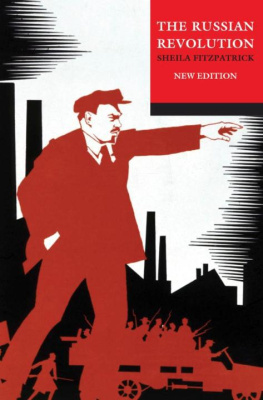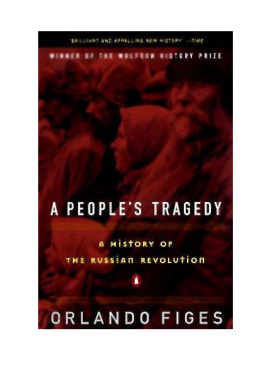A Peoples History of the Russian Revolution
Join the Left Book Club
Membership of the Left Book Club costs just 40 a year, for which you will receive four specially commissioned or licensed titles each year, plus other members benefits, such as access to events, newsletters, and special offers on non-LBC titles.
To join please visit www.leftbookclub.com

Also available
Here We Stand
Women Changing the World
Helena Earnshaw and
Angharad Penrhyn Jones
Being Red
A Politics for the Future
Ken Livingstone
Syriza
Inside the Labyrinth
Kevin Ovenden
Foreword by Paul Mason
Sound System
The Political Power of Music
Dave Randall
Cut Out
Living Without Welfare
Jeremy Seabrook
The Rent Trap
How We Fell Into It and
How We Get Out of It
Rosie Walker and Samir Jeraj
A Peoples History of
the Russian Revolution
Neil Faulkner

First published 2017 by Pluto Press
345 Archway Road, London N6 5AA
www.plutobooks.com
Copyright Neil Faulkner 2017
The right of Neil Faulkner to be identified as the author of this work has been asserted by him in accordance with the Copyright, Designs and Patents Act 1988.
The Left Book Club, founded in 2014, company number 9338285 pays homage to the original Left Book Club founded by Victor Gollancz in 1936.
British Library Cataloguing in Publication Data
A catalogue record for this book is available from the British Library
ISBN 978 0 7453 9904 1 Hardback
ISBN 978 0 7453 9903 4 Paperback
ISBN 978 1 7868 0019 0 PDF eBook
ISBN 978 1 7868 0021 3 Kindle eBook
ISBN 978 1 7868 0020 6 EPUB eBook
This book is printed on paper suitable for recycling and made from fully managed and sustained forest sources. Logging, pulping and manufacturing processes are expected to conform to the environmental standards of the country of origin.
Typeset by Stanford DTP Services, Northampton, England
Simultaneously printed in the United Kingdom and United States of America
Contents
Series Preface
The first Left Book Club (193648) had 57,000 members, had distributed 2 million books, and had formed 1,200 workplace and local groups by the time it peaked in 1939. LBC members were active throughout the labour and radical movement at the time, and the Club became an educational mass movement, remodelling British public opinion and contributing substantially to the Labour landslide of 1945 and the construction of the welfare state.
Publisher Victor Gollancz, the driving force, saw the LBC as a movement against poverty, fascism, and the growing threat of war. He aimed to resist the tide of austerity and appeasement, and to present radical ideas for progressive social change in the interests of working people. The Club was about enlightenment, empowerment, and collective organisation.
The world today faces a crisis on the scale of the 1930s. Capitalism is trapped in a long-term crisis. Financialisation and austerity are shrinking demand, deepening the depression, and widening social inequalities. The social fabric is being torn apart. International relations are increasingly tense and militarised. War threatens on several fronts, while fascist and racist organisations are gaining ground across much of Europe. Global warming threatens the planet and the whole of humanity with climate catastrophe. Workplace organisation has been weakened, and social democratic parties have been hollowed out by acceptance of pro-market dogma. Society has become more atomised, and mainstream politics suffers an acute democratic deficit.
Yet the last decade has seen historically unprecedented levels of participation in street protest, implying a mass audience for progressive alternatives. But socialist ideas are no longer, as in the immediate post-war period, in the tea. One of neoliberalisms achievements has been to undermine ideas of solidarity, collective provision, and public service.
The Left Book Club aspires to meet this ideological challenge. Our aim is to offer high-quality books at affordable prices that are carefully selected to address the central issues of the day and to be accessible to a wide general audience. Our list represents the full range of progressive traditions, perspectives, and ideas. We hope the books will be used as the basis of reading circles, discussion groups, and other educational and cultural activities relevant to developing, sharing, and disseminating ideas for change in the interests of the common people at home and abroad.
The Left Book Club collective
Acknowledgements
My understanding of the Russian Revolution has been shaped by countless lectures, meetings, and discussions involving hundreds of revolutionary activists. It is impossible to recall, let alone list, all those who, at different times and in different ways, have influenced my perspective.
I should perhaps record that, from 1980 to 2010, I was an active member of the Socialist Workers Party in Britain. For much of that time, especially in the 1980s, I believe the SWP to have been a small but effective revolutionary organisation that punched above its weight. I also believe it to have been a powerhouse of Marxist theory. Its degeneration into a self-referencing and self-perpetuating sect is, in my view, a tragic development in the history of the British Left.
But it would be dishonest not to make it clear that most of what I know about revolution both as historian and activist I owe to the SWP of the 1980s. I therefore owe a deep debt of gratitude to all the SWP comrades alongside whom I fought the Nazis, supported the miners, refused to pay the poll tax, and, when we had time, debated the history of the international working-class movement.
Since 2010, I have formed many new and rewarding political friendships, and these have contributed, I believe, to a richer, more nuanced understanding of the Russian Revolution. Not least, the degeneration of the British Left over the last two or three decades which is a generic process, not something restricted to the SWP has given me a clearer understanding that revolutionary parties are built by the masses themselves in struggle; that is, they do not arise from voluntarism, from acts of will by self-appointed revolutionary vanguards; they do not arise from what has sometimes been called the primitive accumulation of cadre. Revolutionaries should organise. But they should never proclaim themselves to be the party. Only the masses in struggle can create a party of revolution.
I should give special thanks to two of those new friends, David Castle of Pluto Press and Nik Gorecki of Housmans Bookshop and the Left Book Club, for critical comments on the first draft of this book. The final version is, in consequence, much improved.
Dates, Names, Prices, and Wages
Russia used the Julian Calendar until 1918. This was 13 days behind the Gregorian Calendar. Thus, for example, the Storming of the Winter Palace took place on 25/26 October according to the Julian Calendar, but 7/8 November according to the Gregorian. I have used Julian dates for events in Russia before the adoption of the Gregorian system.
The transliteration of Russian names into English is inconsistent. In each case, I have tried to choose a convenient form and stick to it. A further problem arises from changes in name, of which there have been many, due to war and revolution, in the last century of Russian history. St Petersburg is an obvious example: it has been St Petersburg (before the First World War), Petrograd (191424), Leningrad (192491), and is now St Petersburg again.
Next page
